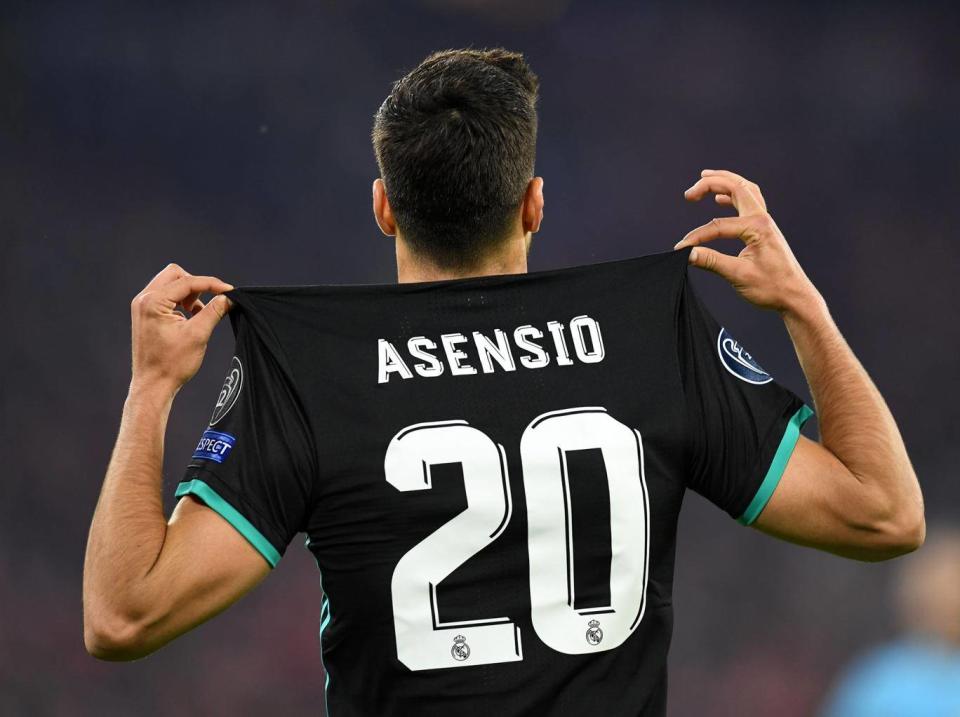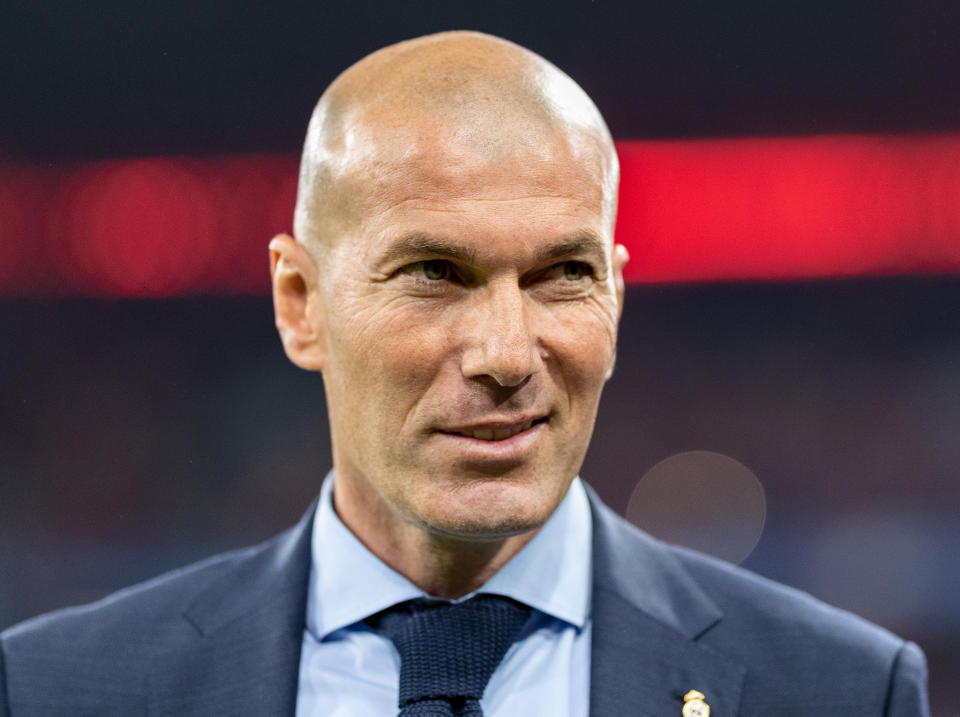Zinedine Zidane’s intuition and humility prove he is far more than a mere ‘clap-your-hands coach’
Half-time at the Allianz Arena, and after a 45 minutes from which a sub-par Real Madrid had miraculously emerged level against Bayern Munich, the joke doing the rounds was that Zinedine Zidane would be clapping furiously in the dressing room.
The Real Madrid manager is often described in Spain, rather disparagingly, as a “clap-your-hands coach”, one who rules by inaction rather than intervention, empty platitudes rather than genuine expertise. It’s a way of telling the world that a guy who has won two Champions Leagues in his first two years of management simply got lucky. A fraud by any other name.
READ MORE: Vieira ‘happy’ to be linked with Arsenal role
READ MORE: ‘Salah has to do more’ - Former Man Utd star
What happened, instead, was this. Isco was injured, and so Zidane replaced him with Marco Asensio. It didn’t look a straight swap: why not Mateo Kovacic, if you wanted to replace Isco’s cultured control in the middle of the pitch? Why not the far more experienced Gareth Bale or Karim Benzema?
But Zidane had his reasons. Though he was happy with how Real were playing in possession, he was less pleased with their work off the ball, where Thiago and James Rodriguez were passing through them with ease. He wanted Asensio’s tactical discipline, his elastic press, his lightning pace on the counter attack. Within 12 minutes of coming on, and playing in an uncharacteristically withdrawn role on the left of midfield, Asensio sprang out of defence after a corner, intercepted a stray pass from Rafinha and launched a clinical counter-attack to score the decisive goal.

Another problem solved, then. Another clutch game won. And even if Zidane was keen to deflect the praise (“you can’t say it’s my coaching,” he insisted afterwards), the curious thing about this curiously underperforming, curiously overachieving Zidane team is that a pattern is beginning to emerge. For a coach widely derided as something of a cipher, Zidane is developing a happy habit of making decisive changes in big games.
There was, for example, the late double-substitution against Paris Saint-Germain, in which Asensio and Lucas Vazquez ran riot in the last 10 minutes, turning a 1-1 draw into a 3-1 victory. Last season, Real’s 3-2 win at Villarreal was widely attributed to Zidane’s decision to introduce Isco when Real were 2-0 down.
Nor is it simply about substitutions: during last year’s Champions League final at Cardiff, it was Zidane’s unusually detailed tactical instructions at half-time - essentially urging his team to play with greater width - that helped transform the match. Quietly and by degrees, Zidane is developing a reputation as a genuine game-changer, or at the very least someone who might just know what he is doing.
In a way, there was something fitting about Bayern being the scene of his latest triumph. A little over three years ago, it was to this city, and this club, where he came to finish off his Uefa Pro Level Three coaching licence. Along with the likes of Willy Sagnol and Claude Makelele, Zidane spent a few days watching Pep Guardiola up close: going behind the scenes, observing training sessions, mining him for information.
Zidane was also heavily influenced by his meetings with Marcelo Bielsa at Marseille, not so much in the intricate detail but in Bielsa’s approach to preparing a side. “Don’t imitate anyone else,” Bielsa is said to have told him. “Stay on your own track.”

There may be little particularly novel or radical about Zidane-ball, there is clearly a philosophy at work there, a set of basic principles that he cleaves to. Regardless of the formation itself, there is a clear emphasis on creating numerical superiorities all over the pitch. The importance of playing between the lines. Of spreading the ball quickly. Of stretching the pitch and making use of the channels. At the very least, Zidane’s reputation as little more than a facilitator has clearly been overplayed a tad. He genuinely does think about this stuff.
Perhaps the reason Zidane’s managerial talents are so often underplayed is that they defy any sort of easy categorisation or characterisation. Clearly there’s a cerebral element at work there, but on some level it’s about intuition as much as instruction: the ability to feel his way through a game, the knack of sniffing danger a fraction before it happens, the keen anticipation that forms the clearest visible parallel between his playing and coaching lives.
But there are human qualities on show, too: the humility to make a change, essentially admitting your original game-plan didn’t work. The courage to hook Cristiano Ronaldo; Zidane was the first Real manager who dared to do so for tactical reasons. The resolve to break up the wildly successful BBC, given that Bale, Benzema and Ronaldo generally offer too little defensive cover to be played in tandem in the biggest games.

And of course, there’s still plenty there for his detractors to grasp hold of. Yes, Real have been badly found out during this season’s La Liga campaign. Yes, they still look fragile at set pieces. Yes, they can be got at by elite-level sides with pace on the break (although try and name a team that can’t). But it’s easy to forget that we’re talking about a coach in only his second full season in top-level management. It would be obstinate in the extreme to deny the potential for Zidane to develop, to learn, even to improve over time.
Yes, his playing career afforded him instant advantages that many of his predecessors never enjoyed. Yes, his status at the club smoothed his path. Yes, he inherited one of the most talented, balanced squads in Real Madrid history, and one of the greatest elite goalscorers in football history. And yes, he took over the wealthiest club in the world. But Zidane is on the verge of becoming the first coach to win three Champions Leagues in a row since the 1970s.
You don’t do that just by clapping your hands.

 Yahoo Sport
Yahoo Sport 










































